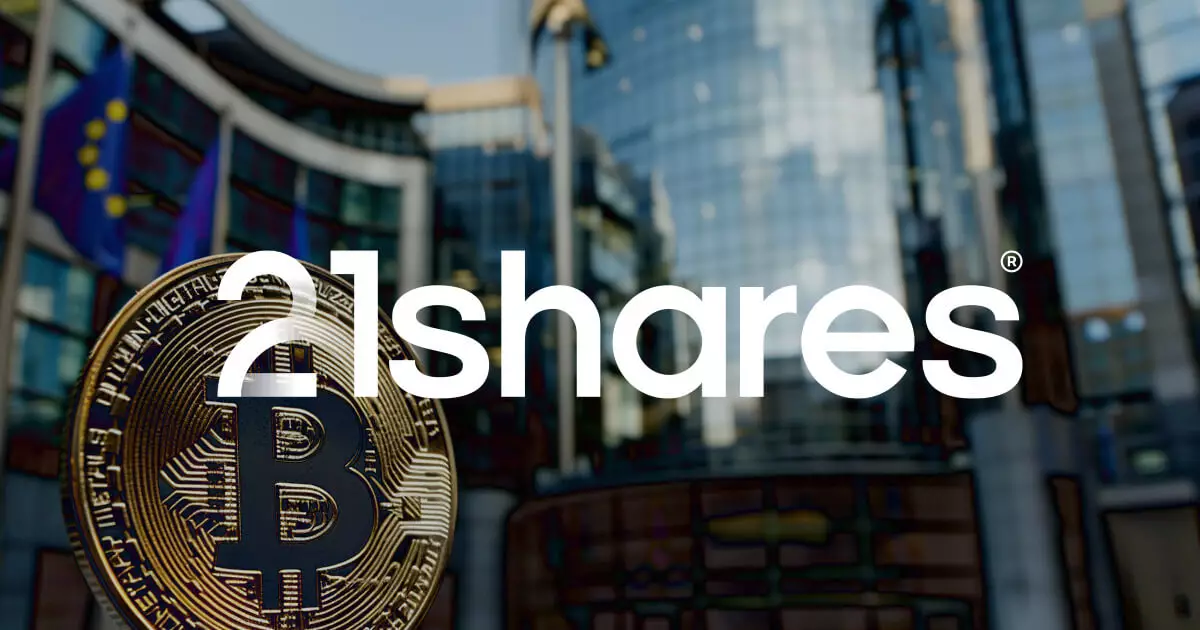In recent years, the European crypto landscape has seen a mix of acceptance and hesitation as various countries navigate the complexities of integrating digital currencies into traditional financial systems. This inconsistency has become a pressing concern, as emphasized by 21Shares, a prominent crypto investment firm. Their call to the European Securities and Markets Authority (ESMA) for the establishment of standardized regulations regarding the incorporation of cryptocurrencies into UCITS (Undertakings for Collective Investment in Transferable Securities) funds sheds light on the urgent need for uniformity. With countries like Germany and Malta embracing crypto assets in their UCITS offerings while others, including Luxembourg and Ireland, remain reluctant, the disparity creates confusion for both retail and institutional investors.
The present fragmented regulatory framework presents considerable challenges, particularly for retail investors aiming to harness the potential of cryptocurrencies. Mandy Chiu, Head of Financial Product Development at 21Shares, articulates how this inconsistency hampers investors’ opportunities. By highlighting the significant regulatory gaps across European nations, it becomes evident that a cohesive approach could unlock broader investment opportunities and provide a stable environment that promotes investor confidence. Investors are often left navigating a murky landscape, which limits their ability to diversify their portfolios effectively.
Furthermore, the lack of cohesive regulations could potentially stifle growth within the cryptocurrency sector, which thrives on innovation and adaptation. A comprehensive set of guidelines would not only lead to better compliance and risk management but would also foster an environment conducive to market growth and stability.
The Role of ESMA and Future Regulatory Frameworks
Given this backdrop, the importance of ESMA’s role in defining clear and consistent rules cannot be overstated. By crafting a uniform regulatory framework, ESMA would not only provide clarity to investors but would also galvanize innovation in the crypto sector across all EU member states. The recent emphasis on the Markets in Crypto Assets (MiCA) regulation is a step in this direction, as it aims to establish a collective rulebook for digital assets that seeks to balance investor protections with the promotion of technological advancements within the financial market.
MiCA’s requirements for crypto service providers to gain authorization from national financial regulators represent a significant regulatory shift that aligns with broader global trends aimed at fostering transparency and accountability in digital finance. This, however, is only the beginning. As firms gear up to comply with these new regulations, there’s an urgent call for additional frameworks to cover indirect cryptocurrency exposure through established investment vehicles like UCITS funds.
The call from 21Shares for ESMA to standardize crypto regulations reflects a critical turning point in the European investment market. It underscores the necessity for a clear, informed, and unified regulatory posture that can empower not only institutional players but also retail investors seeking to participate in the evolving cryptocurrency landscape. As the EU marches toward comprehensive legal frameworks, the opportunity to create a safer, more inclusive investment environment lies within reach – provided that regulators act decisively and collaboratively to bridge the current gaps.


















Leave a Reply